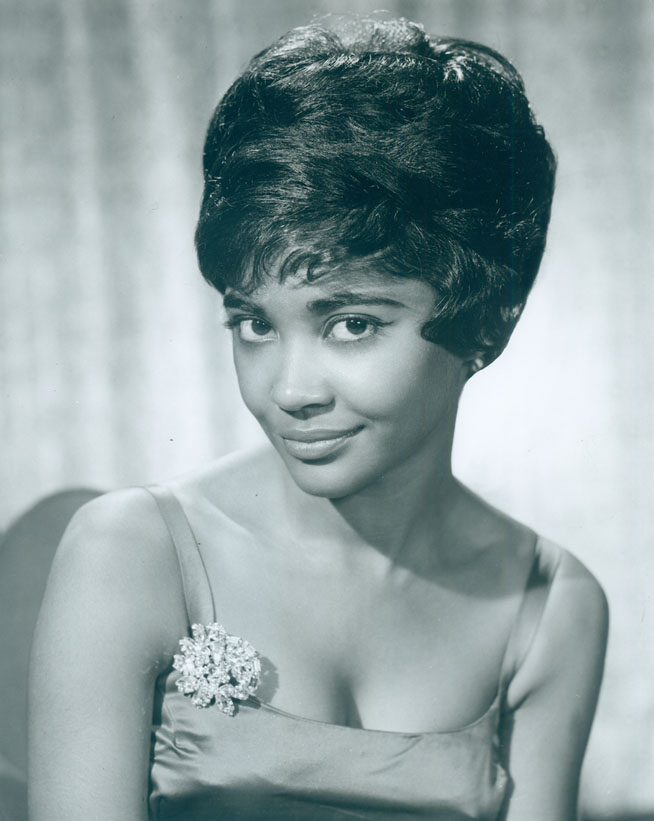Vocal Coaching: Singer Who Bridged Jazz and Pop, Nancy Wilson, Is Dead at 81

Nancy Wilson performing in 1964 at the Hollywood Palace in Los Angeles. A forerunner of the modern female empowerment singer, she could infuse even the saddest song with a sense of strength. Credit: https://downbeat.com
Nancy Wilson, whose skilled and flexible approach to singing provided a key bridge between the sophisticated jazz-pop vocalists of the 1950s and the powerhouse pop-soul singers of the 1960s and ’70s, died Dec 13, 2018 at her home in Pioneertown, Calif. She was 81.
Her death was confirmed by her manager, Devra Hall Levy, who said Ms. Wilson had been ill for some time; she gave no other details.
In a long and celebrated career, Ms. Wilson performed American standards, jazz ballads, Broadway show tunes, R&B torch songs and middle-of-the-road pop pieces, all delivered with a heightened sense of a song’s narrative.
“I have a gift for telling stories, making them seem larger than life,” she told The Los Angeles Times in 1993. “I love the vignette, the plays within the song.”
Some of Ms. Wilson’s best-known recordings told tales of heartbreak, with attitude. A forerunner of the modern female empowerment singer, with the brassy inflections and biting inflections to fuel it, Ms. Wilson could infuse even the saddest song with a sense of strength.
“Face It Girl,” an epic soul blowout, became one of Ms. Wilson’s biggest chart scores, making the Top 30 of Billboard’s pop chart and Top 15 on its R&B list.
Her biggest hit came in 1964, when “(You Don’t Know) How Glad I Am” (Jimmy Williams and Larry Harrison), a rapturous R&B ballad delivered with panache, reached No. 11 on Billboard’s pop chart.
Three years later she became one of the few African-Americans of her day to host a TV program, the Emmy-winning “Nancy Wilson Show,” on NBC.
A hardworking and highly efficient singer, Ms. Wilson released more than 70 albums in a five-decade recording career. She won three Grammy Awards, one for best rhythm and blues recording for the 1964 album “How Glad I Am,” and two for best jazz vocal album, in 2005 and 2007. In 2004, she was honored as a Jazz Master by the National Endowment for the Arts.
Nancy Sue Wilson was born on Feb. 20, 1937, in Chillicothe, Ohio, the first of six children of Olden Wilson, a supervisor at an iron foundry, and Lillian (Ryan) Wilson, a maid. Her father introduced her to records by mainly male artists, like Nat King Cole, Billy Eckstine and Jimmy Scott, when he sang with Lionel Hampton’s Big Band. “Much of my phrasing is so similar to Jimmy Scott’s,” Ms. Wilson told the The Los Angeles Times.
At 15, while she was still a student at West High School in Columbus, Ohio, Ms. Wilson entered a talent contest held by the local television station WTVN; it led to regular appearances twice a week on its show “Skyline Melodies.” Until her graduation, she sang at nightclubs, sometimes with Sir Raleigh Randolph and His Sultans of Swing, an 18-piece band.
Ms. Wilson arrived in New York in 1959 with three goals: to be signed by the influential jazz manager John Levy, who worked with the saxophonist Cannonball Adderley and the British pianist George Shearing; to be signed by Capitol Records, the home of singers like Nat King Cole and Peggy Lee; and to record her first album with the producer David Cavanaugh, who worked with those singers.
Within five months she fulfilled all three goals, even while holding down a day job as a secretary at the New York Institute of Technology. A high-profile gig at the Blue Morocco club led to the contract with Mr. Levy, who got her the label deal, which connected her with Mr. Cavanaugh to produce her debut album in 1960, “Like in Love,” with splashy arrangements by Billy May.
Live performances, particularly in intimate nightclubs, where audiences could see her gestures, became a hallmark. “Audiences want to see a song as well as hear it,” Ms. Wilson told Jazz Wax. “Part of what I do is in my body language, my hands, my arms. You miss a lot by just hearing my voice.”
At the same time, Ms. Wilson worked tirelessly in the studio, releasing three albums in a single year during her prime. She also made many guest appearances on television, singing on variety shows like “The Ed Sullivan Show” and “The Tonight Show,” and acting in hit series (“I Spy” and “Room 222”).
She used her prominence to break down racial stereotypes. “That’s what I loved about doing ‘The Carol Burnett Show,’ ” she said. “I didn’t have to play ‘black characters.’ I could just do comedy, which I loved.”
Ms. Wilson’s music moved with the times. She cut songs written by the Beatles and Stevie Wonder on her 1966 album “A Touch of Today,” and later incorporated disco and R&B styles before moving back to jazz on her later albums, culminating in “Turned to Blue” in 2006.
Ms. Wilson’s marriage in 1960 to the drummer Kenny Dennis ended in divorce a decade later. In 1973, she married Wiley Burton, a Presbyterian minister, and remained with him until his death in 2008.
She is survived by her three children, Kacy Dennis, Sheryl Burton and Samantha Burton; two sisters, Karen Davis and Brenda Vann; and five grandchildren.
Ms. Wilson remained proud of her holistic approach to music, preferring to call herself a “song stylist” rather than a follower of any genre. “I don’t put labels on it, I just sing,” she told The Los Angeles Times. “It’s all in the ear of the listener. Let them decide.”
Read full article here: https://www.nytimes.com/2018/12/14/obituaries/nancy-wilson-dead-jazz-singer.html
For more information contact us at Rouvas (0404) 044 823

